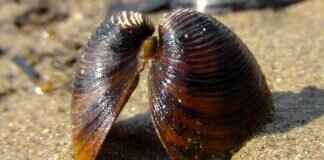White fit shirts have become an essential part of every football fan’s wardrobe. Their significance extends beyond mere fashion; they embody a sense of community, style, and practicality. This article delves into the reasons why these shirts are a staple for football enthusiasts, exploring their versatility, style, and the practical benefits they offer.
The Versatility of White Fit Shirts
One of the most appealing aspects of white fit shirts is their versatility. They can be worn on game days, casual outings, or even at more formal events. A well-fitted white shirt can easily transition from the stands to a pub, enhancing a fan’s wardrobe while effortlessly showcasing their team spirit. Whether paired with jeans for a laid-back look or dressed up with chinos for a smarter appearance, white fit shirts offer endless styling possibilities.
Why Football Fans Prefer White Shirts
Many football fans are drawn to white shirts due to their clean aesthetic. White serves as a neutral backdrop that allows fans to incorporate team colors and logos without clashing. This makes it a popular choice for many supporters who wish to represent their teams while maintaining a stylish appearance. Additionally, the color white symbolizes purity and unity, making it a fitting choice for fans who come together to support their teams.
The Symbolism of White in Football Culture
In football culture, wearing a white shirt often signifies solidarity among fans. During significant matches, fans don white shirts to demonstrate their collective support, transcending individual team loyalties. This act of unity can enhance the atmosphere in stadiums, creating a sense of camaraderie among supporters.
Historical Context of White Shirts in Football
Historically, white shirts have been associated with iconic teams and memorable matches. From legendary players to unforgettable moments, the legacy of white shirts resonates deeply with fans. Wearing a white fit shirt can evoke nostalgia and pride, connecting fans to the rich history of the sport.
Modern Trends in Football Fan Apparel
Contemporary trends have seen a resurgence of white fit shirts, often featuring unique designs and logos. These modern variations cater to both traditionalists and contemporary fans, bridging the gap between generations. Fans can now express their individuality while remaining stylish, making white shirts a versatile choice for all ages.
Comfort and Fit: Key Considerations
When selecting a white fit shirt, comfort and fit are paramount. Fans want to enjoy the game without distractions, whether they are in the stands or watching from home. A well-fitted shirt allows for ease of movement, enhancing the overall experience of supporting their team.
How to Style a White Fit Shirt
Styling a white fit shirt is both simple and effective. Fans can easily incorporate team merchandise, such as scarves or caps, to create a cohesive look that showcases their team spirit. This combination allows for a fashionable appearance that remains appropriate for various occasions.
Accessorizing for Game Day
Accessorizing a white fit shirt can elevate the overall outfit, making it suitable for game day. Options like statement jewelry or stylish jackets can enhance both comfort and style, ensuring fans look their best while supporting their teams.
Choosing the Right Fabric for Comfort
Selecting the right fabric is crucial for comfort. Breathable materials can significantly enhance the experience of wearing a white fit shirt during intense matches or casual events. Cotton, for instance, offers softness and breathability, while polyester provides durability and moisture-wicking properties.
Cotton vs. Polyester: Which is Better?
Understanding the differences between cotton and polyester can help fans choose the best option for their needs. Cotton is ideal for comfort, while polyester is often favored for its durability and ability to wick moisture away from the body, making it a popular choice for active fans.
Care Instructions for Longevity
Following proper care instructions can extend the life of a white fit shirt. Washing in cold water and avoiding harsh detergents can keep the fabric looking fresh and vibrant, ensuring it remains a staple in a fan’s wardrobe for many seasons to come.
Where to Buy Quality White Fit Shirts
Finding quality white fit shirts is essential for fans seeking durability and style. Numerous retailers offer a range of options, catering to different budgets and preferences. Online and brick-and-mortar stores both have their advantages, making it easy for fans to find the perfect fit.
Customizing Your White Fit Shirt
Customizing a white fit shirt, whether through printing or embroidery, allows fans to express their individuality while showcasing their team allegiance in a unique way. This personalization can enhance the emotional connection to the shirt, making it a cherished part of their fan apparel collection.

The Versatility of White Fit Shirts
White fit shirts have emerged as a staple in the wardrobes of football fans, thanks to their remarkable versatility. These shirts can seamlessly transition from game day excitement to casual outings, making them a practical choice for various occasions. Whether you are cheering from the stands or enjoying a weekend brunch with friends, a white fit shirt enhances your style effortlessly.
One of the primary reasons football fans adore white fit shirts is their clean aesthetic. The simplicity of white allows fans to represent their team colors effectively. By pairing a white shirt with vibrant accessories, such as scarves or jackets, fans can create a striking look that captures their team spirit while maintaining an air of sophistication. This adaptability makes white fit shirts a must-have in any football fan’s wardrobe.
Moreover, the symbolism of white in football culture cannot be overlooked. White shirts often signify unity among fans, especially during significant matches where collective support is paramount. Wearing white can transcend individual team loyalties, fostering a sense of community among supporters. This cultural significance adds depth to the appeal of white fit shirts, making them more than just a fashion choice.
Historically, white shirts have been linked to iconic teams and memorable matches. Legendary players and unforgettable moments have solidified the white shirt’s status in football history. As fans don their white shirts, they are not just wearing a piece of clothing; they are participating in a legacy that resonates deeply within the football community.
In modern fashion trends, white fit shirts are experiencing a resurgence. Contemporary designs often incorporate unique logos and styles that cater to both traditionalists and newer fans. This evolution allows fans to celebrate their heritage while embracing current fashion trends, effectively bridging generational gaps.
When selecting a white fit shirt, comfort and fit are paramount. Fans want to enjoy the game without distractions, whether they are in the stands or watching from home. Choosing the right fabric can significantly enhance the wearing experience. Breathable materials, such as cotton, allow for better airflow, keeping fans cool during intense matches.
In terms of fabric choices, there are two primary contenders: cotton and polyester. Cotton is known for its softness and breathability, making it a popular choice among fans. On the other hand, polyester offers durability and moisture-wicking properties, which can be beneficial during heated games. Understanding these differences can help fans make informed decisions based on their preferences and needs.
To ensure longevity, proper care for white fit shirts is essential. Following washing instructions and avoiding harsh detergents can keep the fabric looking fresh and vibrant for many seasons. Regular maintenance will preserve the shirt’s quality, allowing it to remain a beloved part of a fan’s wardrobe.
When it comes to purchasing quality white fit shirts, fans have a plethora of options. Online retailers offer convenience and a wide selection, while brick-and-mortar stores provide the opportunity to try on different styles and fits. Comparing these shopping methods can help fans make informed choices that suit their needs.
For those looking to express their individuality, customizing a white fit shirt is a fantastic option. Whether through printing or embroidery, personalized designs can showcase team allegiance in a unique way. This customization allows fans to stand out while still embracing the classic appeal of a white fit shirt.
In summary, the versatility of white fit shirts makes them a must-have for football fans. From their clean aesthetic to their cultural significance, these shirts offer a perfect blend of style and practicality. Whether dressing for a game or a casual outing, fans can confidently wear their white fit shirts, knowing they are making a fashionable statement.

Why Football Fans Prefer White Shirts
Football fans have a unique relationship with their apparel, and among the most favored choices is the classic white fit shirt. This preference stems from various factors, including the shirt’s aesthetic appeal, its versatility in styling, and its symbolic significance within football culture.
One of the primary reasons fans choose white shirts is their clean aesthetic. A white shirt serves as a blank canvas that allows fans to showcase their team colors through accessories or logos. This adaptability makes it easy to incorporate team merchandise, such as scarves, hats, or jackets, creating a cohesive look that expresses team loyalty while maintaining a stylish appearance.
In addition to aesthetics, white shirts are incredibly versatile. They can be worn on game days, during casual outings, or even at social gatherings. This flexibility enhances a fan’s wardrobe, allowing them to transition seamlessly from the stands to a local pub without needing to change. The ability to dress up or down a white fit shirt makes it a practical choice for various occasions.
Moreover, the symbolism of white in football culture cannot be overlooked. White shirts often symbolize unity and fairness among fans, particularly during significant matches. Wearing white can transcend individual team loyalties, creating a sense of solidarity among supporters. This collective spirit is particularly evident during high-stakes games where fans from different backgrounds come together, donning white to show their support for the sport itself.
Historically, white shirts have been associated with iconic teams and unforgettable matches. The legacy of these shirts resonates deeply with fans, adding emotional weight to their choice of apparel. Many fans recall legendary moments in football history while wearing their white shirts, creating a personal connection to the sport that goes beyond mere fashion.
In recent years, there has been a resurgence of white fit shirts in football fan apparel. Modern designs often feature unique graphics or logos that cater to both traditionalists and contemporary fans. This trend bridges generational gaps, allowing younger fans to embrace the classic white shirt while incorporating modern aesthetics.
Comfort and fit are also crucial considerations when selecting a white shirt. Fans want to enjoy the game without distractions, whether they are cheering from the stands or watching at home. A well-fitted shirt made from breathable fabric can enhance the overall experience, ensuring that fans remain comfortable throughout the match.
When it comes to fabric choices, fans often debate between cotton and polyester. Cotton is known for its softness and breathability, making it a popular choice for casual wear. On the other hand, polyester offers durability and moisture-wicking properties, which can be beneficial during intense matches. Understanding these differences can help fans select the best option for their needs.
Maintaining the longevity of a white fit shirt is also essential for fans. Following proper care instructions, such as washing in cold water and avoiding harsh detergents, can help preserve the shirt’s color and fabric integrity. This ensures that the shirt remains a staple in a fan’s wardrobe for many seasons, retaining its appeal and significance.
For those looking to purchase quality white fit shirts, various options are available. Fans can explore both online retailers and brick-and-mortar stores to find shirts that suit their style and budget. Online shopping offers convenience and a broader selection, while physical stores allow fans to try on shirts for the perfect fit.
Additionally, customizing a white fit shirt through printing or embroidery can provide fans with a unique way to express their individuality and showcase their team allegiance. This personalization adds a special touch, making the shirt not just a piece of clothing but a cherished item that reflects a fan’s passion for the game.
The Symbolism of White in Football Culture
In the world of football, white shirts carry a profound significance that transcends mere fashion. They are not just a piece of clothing; they represent a deeper connection among fans and the spirit of the game itself. The use of white shirts during crucial matches has become a tradition that embodies values such as unity, fairness, and solidarity among supporters, regardless of which team they cheer for.
One of the most striking aspects of wearing white shirts is their ability to create a visual representation of togetherness. During significant matches, fans often don these shirts to showcase their collective support for the sport itself. This act of wearing white can be seen as a statement that goes beyond team loyalties, emphasizing the shared love for the game. In many instances, especially during international tournaments, fans from various backgrounds come together in white, symbolizing a unified front that celebrates the sport’s global appeal.
The historical context of white shirts in football culture is equally fascinating. Over the decades, iconic teams have adopted white as their primary color, leading to unforgettable moments that are etched in the memories of fans. Matches where teams wore white shirts have often been associated with legendary performances, further solidifying the color’s significance in football lore. For example, clubs like Real Madrid and teams like the England national squad have made history while wearing white, creating a lasting legacy that resonates with fans around the world.
Moreover, the modern trends in football fan apparel have seen a resurgence of white shirts, often enhanced with unique designs, logos, and creative elements. This evolution caters to both traditionalists who appreciate the classic look and contemporary fans who seek to express their individuality. The versatility of white shirts allows fans to wear them not only during matches but also in casual settings, making them a valuable addition to any wardrobe.
When it comes to comfort and fit, choosing the right white shirt is essential for fans who want to enjoy the game without distraction. Whether in the stands or watching from home, a well-fitted shirt can enhance the overall experience. Fans often debate between materials like cotton and polyester, weighing factors such as breathability, durability, and moisture-wicking properties to find the perfect match for their needs.
To further personalize their experience, fans often explore the option of customizing their white shirts. This can be done through various means, including printing or embroidery, allowing them to showcase their allegiance in a unique way. Customization not only enhances the personal connection to the shirt but also serves as a conversation starter among fellow fans.
In summary, the symbolism of white shirts in football culture is multi-faceted, representing unity, historical significance, and a modern twist on fan apparel. As fans continue to embrace this color, it remains a powerful emblem of their passion for the game, fostering connections that go beyond individual team loyalties. Whether worn during a nail-biting match or casually in everyday life, white shirts serve as a canvas for expressing the shared love of football.
Historical Context of White Shirts in Football
White shirts have played a significant role in the history of football, transcending mere apparel to become symbols of team identity and cultural significance. Their association with iconic teams and unforgettable matches has forged a legacy that resonates deeply with fans across the globe. This article delves into the historical context of white shirts in football, exploring their evolution and the emotional connections they foster among supporters.
The roots of white shirts in football can be traced back to the early days of the sport. In the late 19th century, teams began adopting distinctive colors to differentiate themselves on the pitch. White emerged as a popular choice due to its clean appearance and ability to symbolize purity and fairness. The simplicity of a white shirt allows for easy incorporation of team logos and colors, making it a versatile option for fan apparel.
Throughout football history, numerous memorable matches have featured teams donning white shirts. For instance, the legendary Real Madrid and their iconic white kit have become synonymous with success and prestige, winning countless titles and captivating fans worldwide. Similarly, the England national team has worn white shirts during significant tournaments, creating a sense of unity and pride among supporters.
White shirts have evolved into symbols of unity among fans, particularly during crucial matches. When supporters wear their team’s white kit, it signifies a collective identity, transcending individual differences. This phenomenon is particularly evident during international tournaments, where fans from various backgrounds come together, united in their support for their nation. The sight of thousands of fans in white shirts creates an electrifying atmosphere, enhancing the overall experience of the game.
In recent years, the popularity of white shirts has seen a resurgence, with contemporary designs appealing to both traditionalists and new fans. Modern white fit shirts often feature unique patterns, graphics, and logos that reflect the evolving nature of football culture. This trend not only caters to the aesthetic preferences of fans but also reinforces their connection to the sport’s rich history.
The enduring legacy of white shirts in football extends beyond the pitch. They have become integral to fan culture, representing a shared passion and loyalty. Fans often wear these shirts not just during matches but also in everyday life, showcasing their allegiance to their teams. This cultural phenomenon highlights the emotional connection that supporters have with their clubs, as wearing a white shirt becomes a badge of honor and pride.
As football continues to evolve, so too will the significance of white shirts. With advancements in fabric technology and design, fans can expect even greater comfort and style in their apparel. Additionally, the ongoing globalization of football will likely introduce new interpretations of white shirts, further enriching their historical context and cultural relevance.
In conclusion, the historical context of white shirts in football is a testament to their enduring significance in the sport. From their origins to their role as symbols of unity and identity, white shirts have woven themselves into the fabric of football culture. As fans continue to embrace these iconic garments, their legacy will undoubtedly persist for generations to come.
Modern Trends in Football Fan Apparel
Modern trends in football fan apparel are witnessing a remarkable revival of white fit shirts, which have evolved to cater to a diverse audience. These shirts are not merely a fashion statement; they symbolize a connection between tradition and modernity, appealing to both long-time supporters and newer fans alike.
One of the most captivating aspects of these shirts is their ability to blend classic designs with contemporary elements. Many brands are now introducing white fit shirts that feature unique graphics and logos, allowing fans to express their individuality while still showcasing their team pride. This fusion of styles helps to bridge generational gaps, making the shirts appealing to a wider demographic.
- Custom Designs: Many fans are opting for customized white fit shirts, adding personal touches like their favorite player’s name or a memorable match date.
- Eco-Friendly Options: With a growing emphasis on sustainability, brands are producing eco-friendly white fit shirts made from organic materials, appealing to environmentally conscious fans.
- Limited Editions: Exclusive releases and limited-edition designs are becoming increasingly popular, providing fans with unique pieces that stand out in the crowd.
The popularity of white fit shirts can also be attributed to their versatility. They can be easily paired with various outfits, making them suitable for different occasions, from game day to casual outings. Football fans appreciate the ability to wear these shirts in a range of settings, enhancing their wardrobe without sacrificing style.
In addition to their aesthetic appeal, comfort plays a vital role in the choice of a white fit shirt. Fans prioritize fit and fabric, opting for breathable materials that allow for ease of movement during intense matches or social gatherings. The choice between cotton and polyester is significant, as each material offers distinct benefits. Cotton is often preferred for its softness and breathability, while polyester provides durability and moisture-wicking properties.
When it comes to styling a white fit shirt, the options are endless. Fans can effortlessly incorporate team merchandise, such as scarves or caps, to create a cohesive look that showcases their loyalty while remaining fashionable. Additionally, accessorizing for game day with statement jewelry or stylish jackets can elevate the overall outfit, ensuring fans look their best while supporting their teams.
For those seeking quality white fit shirts, numerous retailers offer a variety of options. Online shopping provides convenience and a wider selection, while brick-and-mortar stores allow fans to try on shirts for the perfect fit. It’s essential to consider the return policies and availability of sizes when making a purchase.
Customizing white fit shirts is another trend gaining traction among fans. Whether through printing or embroidery, personalized designs allow individuals to express their unique identity while showcasing their team allegiance. This customization adds a personal touch, making the shirt more than just a piece of clothing but a cherished keepsake.
In conclusion, the resurgence of white fit shirts in football fan apparel reflects a broader trend towards personalization and inclusivity. By embracing both traditional and modern elements, these shirts serve as a unifying symbol for fans of all ages, reinforcing their connection to the sport and each other.
Comfort and Fit: Key Considerations
When it comes to football apparel, comfort and fit are paramount, especially for fans who want to immerse themselves in the excitement of the game. Whether cheering from the stands or enjoying the match from the comfort of home, the right white shirt can make all the difference. Here, we delve deeper into why these factors are essential for football enthusiasts.
Football matches can be lengthy, often lasting several hours, which means that the clothing worn during these events needs to be comfortable. A well-fitted white shirt allows for freedom of movement, ensuring that fans can jump, cheer, and celebrate without feeling restricted. The right fit not only enhances comfort but also boosts confidence, allowing fans to express their team spirit without any distractions.
The choice of fabric plays a significant role in the overall comfort of a white fit shirt. Fabrics such as cotton and moisture-wicking polyester are popular among fans. Cotton is breathable and soft, making it ideal for warmer days, while polyester offers durability and moisture control, perfect for those intense game days. Understanding the differences between these materials can help fans choose the best option for their needs.
Choosing the right size is crucial for achieving the perfect fit. A shirt that is too tight may restrict movement, while one that is too loose can appear sloppy. Many brands offer size guides to help fans find their ideal fit. Additionally, considering body shape can enhance the overall look and comfort of the shirt. For example, those with a more athletic build may prefer a fitted style, while others may opt for a relaxed fit.
Football fans can style their white fit shirts to ensure both comfort and functionality. Pairing the shirt with lightweight shorts or comfortable jeans can create a balanced look. Additionally, layering with a light jacket or a team hoodie can provide extra warmth during cooler matches without sacrificing style.
Accessories can also play a vital role in enhancing comfort. Wearing a comfortable cap can shield fans from the sun, while breathable footwear ensures that they remain comfortable throughout the game. Fans should also consider lightweight scarves that can be easily removed or adjusted as temperatures change.
On game day, the right fit can significantly impact the overall experience. A well-fitted white shirt not only looks good but also allows fans to engage fully in the atmosphere of the match. Whether it’s jumping to their feet during a goal or simply enjoying a moment of camaraderie with fellow fans, comfort and fit are essential for an enjoyable experience.
In summary, comfort and fit are crucial factors for football fans when selecting a white shirt. By considering the type of fabric, the right size, and how to style the shirt for various occasions, fans can ensure they are prepared for the excitement of game day. Investing in a quality white fit shirt can enhance the overall experience, allowing fans to support their teams in style and comfort.

How to Style a White Fit Shirt
Styling a white fit shirt is not only simple but also an effective way for football fans to showcase their team spirit while maintaining a polished appearance. This versatile garment can be dressed up or down, making it suitable for a variety of occasions.
One of the most appealing aspects of a white fit shirt is its versatility. Whether you are heading to a game, meeting friends for brunch, or attending a casual office event, a white shirt can be easily adapted to fit the setting. The neutral color acts as a blank canvas, allowing you to pair it with various accessories and pieces from your wardrobe.
Pairing with Team Merchandise
- Scarves: A vibrant team scarf can add a pop of color while keeping you warm during chilly matches.
- Caps: A stylish cap featuring your team’s logo can enhance your look and protect you from the sun.
- Jackets: Layering a denim or bomber jacket over your white fit shirt can create a trendy, relaxed vibe.
Additionally, incorporating team merchandise into your outfit not only showcases your loyalty but also keeps the look cohesive. The key is to maintain balance; if your shirt is plain, feel free to add more colorful or patterned items to your ensemble.
Accessorizing for Game Day
When it comes to game day, accessorizing your white fit shirt can elevate your outfit significantly. Consider the following:
- Statement Jewelry: Chunky necklaces or bold earrings can add a touch of flair and personality to your look.
- Footwear: Sneakers are a popular choice for comfort, but stylish loafers or ankle boots can also work well for a more polished appearance.
- Bags: A crossbody bag or a stylish backpack can be both functional and fashionable.
These accessories not only enhance your outfit but also provide comfort and practicality, allowing you to enjoy the game without feeling out of place.
Choosing the Right Fabric for Comfort
Selecting the right fabric is crucial for ensuring comfort, especially during intense matches or casual events. Breathable materials such as cotton or moisture-wicking blends can keep you cool and comfortable. Here’s a quick comparison:
| Fabric Type | Pros | Cons |
|---|---|---|
| Cotton | Soft, breathable, comfortable | Can wrinkle easily |
| Polyester | Durable, moisture-wicking, retains shape | Can feel less breathable |
Understanding these differences can help fans make informed decisions when selecting their perfect white fit shirt.
Care Instructions for Longevity
To keep your white fit shirt looking fresh and new, follow these care instructions:
- Wash in cold water to prevent shrinking.
- Avoid bleach, as it can cause discoloration.
- Air dry or tumble dry on low heat to maintain the fabric’s integrity.
By following these guidelines, fans can ensure that their white fit shirts remain a staple in their wardrobe for many seasons to come.
In Summary
Styling a white fit shirt is an effortless way for football fans to express their team spirit while maintaining a sophisticated look. By pairing it with team merchandise, accessorizing thoughtfully, and choosing the right fabric, fans can create a variety of outfits suitable for any occasion. With proper care, these shirts can last, making them a valuable addition to any fan’s wardrobe.
Pairing with Team Merchandise
When it comes to showcasing your team spirit, few combinations are as effective as pairing a white fit shirt with team merchandise. This stylish approach not only reflects your loyalty but also ensures you look fashionable during any outing.
Why Choose a White Fit Shirt? The versatility of a white fit shirt makes it a staple in any football fan’s wardrobe. Its neutral color provides a perfect backdrop for vibrant team colors and logos, allowing fans to express their allegiance without overwhelming their outfit. Whether you’re heading to a game, meeting friends at a pub, or running errands, a white fit shirt can be dressed up or down with ease.
Creating a Cohesive Look By incorporating team merchandise such as scarves, caps, or even jackets, you create a cohesive look that not only showcases your support but also enhances your overall style. For instance, a vibrant team scarf can add a pop of color to your outfit, while a stylish cap can provide a sporty touch. This combination allows you to transition seamlessly from a casual day out to a lively game day atmosphere.
- Scarves: A team scarf can be draped over your shoulders or wrapped around your neck, adding warmth and flair.
- Caps: A well-fitted cap not only keeps the sun at bay but also serves as a functional accessory that ties your look together.
- Jackets: Pairing your white fit shirt with a team jacket can elevate your outfit, especially during cooler weather.
When selecting team merchandise, consider the quality and design. Opt for items that are made from durable materials and feature your team’s colors prominently. This ensures that your outfit remains stylish and represents your team effectively.
Accessorizing for Extra Style Accessories can significantly enhance the look of a white fit shirt paired with team merchandise. Consider adding statement jewelry or a stylish watch to elevate your outfit further. A classic wristwatch can add sophistication, while bold bracelets can inject a sense of fun and personality into your look.
Additionally, layering is a great way to add depth to your outfit. A lightweight jacket or a denim vest can provide an extra layer of warmth while adding visual interest. Experimenting with different styles and combinations can help you find the perfect look that reflects your personality.
Footwear Choices The right footwear can complete your outfit and enhance your overall appearance. Sneakers are a popular choice among football fans, providing comfort and a casual vibe. However, if you’re looking to dress up your outfit, consider loafers or stylish boots that can add a touch of sophistication while still keeping you comfortable.
In conclusion, pairing a white fit shirt with team merchandise is not just about showing support; it’s about creating a fashionable and cohesive look that works for any occasion. By carefully selecting your accessories and considering the overall aesthetic, you can effortlessly showcase your team spirit while remaining stylish and comfortable.
Accessorizing for Game Day
Accessorizing for game day can significantly enhance your overall look while showcasing your team spirit. A white fit shirt serves as a perfect base for your outfit, allowing you to layer and accessorize in various ways. Here are some tips and ideas to help you elevate your game day ensemble.
- Statement Jewelry: Bold jewelry pieces can add a unique flair to your outfit. Consider wearing a chunky necklace or oversized earrings that incorporate your team colors. This not only draws attention but also allows you to express your personality while supporting your team.
- Stylish Jackets: Layering with a fashionable jacket can provide warmth and style. A denim or leather jacket can be an excellent choice for a casual look, while a sporty bomber jacket can enhance your athletic vibe. Look for jackets that feature your team’s logo or colors to maintain a cohesive appearance.
- Scarves: A lightweight scarf can be a versatile accessory. You can wear it around your neck or tie it to your bag for a pop of color. Opt for scarves that have your team’s emblem or colors to reinforce your allegiance.
- Hats and Caps: A well-chosen cap can be both practical and stylish. Whether it’s a classic baseball cap or a trendy beanie, headwear can protect you from the sun while adding character to your outfit. Choose one that represents your favorite team to complete the look.
- Footwear: The right shoes can make or break an outfit. Sneakers in your team colors can provide comfort and style, making them ideal for a day spent cheering in the stands. Alternatively, stylish ankle boots can add a chic touch if you’re heading to a post-game gathering.
When accessorizing, it’s essential to maintain a balance between comfort and style. Choose pieces that allow you to move freely, especially if you plan to be on your feet for an extended period. Additionally, consider the weather; lightweight fabrics are ideal for warm days, while layered looks are perfect for cooler temperatures.
Moreover, don’t forget about the power of color coordination. While the white fit shirt provides a neutral base, incorporating your team’s colors through your accessories can create a cohesive and spirited look. This not only demonstrates your loyalty but also enhances your overall aesthetic.
Ultimately, accessorizing a white fit shirt for game day is about expressing your individuality while celebrating your team. With the right combination of accessories, you can create a look that is both fashionable and functional, ensuring you feel confident and comfortable while cheering on your favorite team.

Choosing the Right Fabric for Comfort
When it comes to selecting a white fit shirt, choosing the right fabric is crucial for ensuring maximum comfort. This is especially true for football fans who often wear these shirts during intense matches or casual outings. The right fabric can significantly enhance the overall experience, allowing fans to focus on the game rather than being distracted by discomfort.
Breathable materials, such as cotton and moisture-wicking fabrics, play a vital role in keeping the body cool and dry. During hot summer matches, a shirt made from breathable fabric allows for better air circulation, which is essential for maintaining comfort. This is particularly important when fans are cheering for their team, as the excitement can lead to increased body temperature.
In addition to breathability, the fit of the shirt is equally important. A well-fitted shirt that is neither too tight nor too loose can enhance mobility, allowing fans to move freely whether they are in the stands or celebrating a goal with friends. This balance of comfort and style is what makes white fit shirts a popular choice among football enthusiasts.
Another factor to consider is the durability of the fabric. High-quality materials tend to withstand the rigors of regular wear and washing, ensuring that the shirt remains a staple in a fan’s wardrobe for years. Fabrics that are resistant to fading and shrinking maintain their appearance, making them a wise investment for any football fan.
When comparing cotton and polyester, each fabric has its unique advantages. Cotton is known for its softness and natural breathability, making it a comfortable choice for everyday wear. On the other hand, polyester offers excellent moisture-wicking properties, which can be particularly beneficial during high-energy activities. Understanding these differences can help fans make an informed decision based on their specific needs.
To further enhance comfort, fans should also consider the weight of the fabric. Lighter materials tend to be more comfortable during warm weather, while heavier fabrics may provide extra warmth during cooler matches. Choosing the right weight can significantly impact the overall experience, allowing fans to enjoy the game without feeling overheated or chilly.
Additionally, it is essential to pay attention to the care instructions for the chosen fabric. Proper maintenance can extend the life of the shirt, ensuring it remains a favorite for many seasons. Washing in cold water, avoiding harsh detergents, and air drying are simple steps that can preserve the quality of the fabric.
In summary, selecting the right fabric for a white fit shirt is essential for comfort, especially for football fans who want to enjoy the game without distractions. By considering factors such as breathability, fit, durability, and fabric type, fans can make an informed choice that enhances their overall experience. Whether attending a match or enjoying a casual day out, the right fabric will ensure that fans feel comfortable and stylish, showcasing their team spirit with pride.
Cotton vs. Polyester: Which is Better?
When it comes to selecting the perfect fabric for a white fit shirt, understanding the differences between cotton and polyester is crucial for football fans. Each material has its unique properties, impacting comfort, durability, and overall performance during various activities, including watching a match or engaging in casual outings.
Cotton: The Classic Choice
- Breathability: Cotton is renowned for its breathability, allowing air to circulate freely. This feature makes it a popular choice for warm weather, as it helps keep the wearer cool and comfortable.
- Softness: The natural fibers of cotton provide a soft and gentle feel against the skin, making it ideal for long hours of wear.
- Moisture Absorption: Cotton is highly absorbent, capable of soaking up sweat. However, this can lead to a damp feeling if the shirt becomes saturated, especially during intense activities.
Polyester: The Modern Alternative
- Durability: Polyester is known for its strength and durability. It withstands wear and tear better than cotton, making it a long-lasting option for active fans.
- Moisture-Wicking Properties: One of the standout features of polyester is its moisture-wicking ability. It pulls sweat away from the skin, allowing it to evaporate quickly, which keeps the wearer dry and comfortable.
- Quick Drying: Unlike cotton, polyester dries rapidly, making it an excellent choice for those who may encounter unexpected weather changes during a game.
Comfort vs. Performance
Choosing between cotton and polyester often comes down to a balance between comfort and performance. While cotton offers a soft, familiar feel, polyester excels in moisture management and durability. For fans who prioritize comfort during casual outings, cotton might be the preferred choice. However, for those who engage in more active environments or live in humid climates, polyester’s performance features can be particularly beneficial.
Environmental Considerations
Another aspect to consider is the environmental impact of these materials. Cotton is a natural fiber, but its production requires significant water and pesticides. On the other hand, polyester is a synthetic fabric derived from petroleum, which raises concerns about sustainability and environmental degradation. Some brands now offer recycled polyester options, which can help mitigate some of these environmental concerns.
Cost and Maintenance
Cost is another factor to consider when choosing between cotton and polyester. Cotton shirts can be more expensive, particularly if they are made from high-quality, organic cotton. Polyester shirts are typically more affordable and often require less maintenance. They are less prone to wrinkling and can be machine washed without special care, making them a practical choice for busy fans.
Final Thoughts
Ultimately, the choice between cotton and polyester comes down to personal preference and specific needs. Fans should consider factors such as climate, activity level, and style when making their decision. By understanding the unique properties of each fabric, football enthusiasts can select the best option for their white fit shirts, ensuring they remain comfortable and stylish while supporting their favorite teams.
Care Instructions for Longevity
When it comes to maintaining the pristine look of your white fit shirt, following the right care instructions is essential. A well-cared-for shirt not only looks great but also stands the test of time, allowing it to remain a cherished part of your wardrobe for years. Here, we will explore some effective strategies for caring for your white fit shirt, ensuring its longevity and continued appeal.
- Washing Instructions: Always check the care label before washing. Most white shirts can be machine washed in cold water. Use a gentle cycle to prevent fabric wear. If your shirt has stubborn stains, pre-treat them with a suitable stain remover before washing.
- Detergent Choice: Opt for a mild detergent that is free from harsh chemicals. Look for detergents specifically designed for white fabrics, as they often contain optical brighteners that help maintain brightness.
- Avoiding Bleach: While it might be tempting to use bleach to keep whites bright, it can weaken the fabric over time. Instead, consider using a non-chlorine bleach alternative or natural whitening agents like baking soda or lemon juice.
- Drying Techniques: It’s best to air dry your white fit shirt whenever possible. Hang it in a shaded area to prevent fading from sunlight. If you must use a dryer, opt for a low heat setting to minimize shrinkage and fabric damage.
- Ironing Tips: If your shirt is wrinkled after washing, iron it on a low setting while it’s slightly damp. Always iron on the reverse side to avoid any potential shine on the fabric.
- Storage Solutions: Store your white fit shirt in a cool, dry place. Use padded hangers to maintain its shape, and avoid folding it to prevent creases.
By implementing these care tips, you can significantly extend the life of your white fit shirt, ensuring it remains a staple in your wardrobe for many seasons. Remember that proper care not only preserves the garment’s appearance but also contributes to sustainable fashion practices, reducing the need for frequent replacements.
Additionally, consider rotating your shirts to minimize wear on any single piece. This practice allows each shirt ample time to rest between wears, enhancing their longevity. Investing in quality pieces and treating them with care will ultimately save you money in the long run.
In conclusion, a white fit shirt is more than just a piece of clothing; it’s an essential part of a football fan’s attire. By following these care instructions, you can ensure that your shirt not only looks great but also serves you well for many seasons to come.

Where to Buy Quality White Fit Shirts
Finding quality white fit shirts is essential for football fans who prioritize both durability and style. With a plethora of retailers available, fans can explore a diverse range of options that cater to every budget and personal preference. This section delves into various avenues for purchasing these must-have garments, ensuring that fans can make informed choices.
Exploring Online Retailers
One of the most convenient ways to shop for white fit shirts is through online retailers. Websites like Amazon, eBay, and specialized sports apparel sites offer extensive selections. The advantages of online shopping include:
- Convenience: Shop from the comfort of your home, anytime.
- Variety: Access to numerous brands and styles in one place.
- Customer Reviews: Read feedback from other fans to gauge quality and fit.
Brick-and-Mortar Stores
For those who prefer a tactile shopping experience, brick-and-mortar stores are still a viable option. Sporting goods stores, department stores, and dedicated fan shops often carry a selection of white fit shirts. Benefits of shopping in physical stores include:
- Try Before You Buy: Ensure the right fit and comfort by trying shirts on.
- Immediate Purchase: Walk out with your purchase without waiting for delivery.
- Expert Assistance: Receive help from knowledgeable staff who can recommend options based on your needs.
Customizing Your Purchase
Another exciting avenue is the option to customize your white fit shirt. Many retailers offer customization services, allowing fans to add their favorite player’s name, number, or even personalized designs. This not only enhances the shirt’s uniqueness but also strengthens the connection between fans and their teams.
Seasonal Sales and Discounts
Keep an eye out for seasonal sales and promotions that many retailers offer. Black Friday, end-of-season sales, and holiday discounts can provide significant savings on quality white fit shirts. Subscribing to newsletters or following your favorite retailers on social media can give you early access to these deals.
Local Markets and Specialty Shops
Don’t overlook local markets and specialty shops that may carry unique designs not found in larger retailers. These shops often feature locally made products, which can add a personal touch to your fan apparel. Supporting local businesses also fosters community spirit among fellow fans.
Conclusion
In summary, the quest for quality white fit shirts can be successfully navigated through various channels, from online retailers to local shops. By considering factors such as convenience, customization, and seasonal sales, football fans can find the perfect shirt that combines durability and style, ensuring they look great while supporting their teams.
Online Retailers vs. Brick-and-Mortar Stores
When it comes to purchasing white fit shirts, football fans often face the choice between online retailers and brick-and-mortar stores. Each option has its own set of advantages and disadvantages, which can significantly impact a fan’s shopping experience. Understanding these differences can help fans make informed decisions that suit their needs and preferences.
One of the primary advantages of online shopping is convenience. Fans can browse a wide selection of white fit shirts from the comfort of their homes, without the need to travel. This is especially beneficial for those who may not have easy access to local stores or who have busy schedules. Online retailers often provide extensive filtering options, allowing fans to quickly find the exact style, size, and price range they are looking for.
On the other hand, brick-and-mortar stores offer the immediate gratification of seeing and trying on shirts before making a purchase. This tactile experience can be crucial for fans who prioritize fit and comfort. Additionally, shopping in person allows fans to receive immediate assistance from store staff, who can provide valuable insights into sizing and style choices.
Another critical factor to consider is the return policy. Online retailers often have more flexible return policies, allowing fans to return items within a specified period if they are not satisfied. However, returning an item purchased online can be less convenient, as it may require shipping the item back, which can be time-consuming and sometimes costly.
In contrast, brick-and-mortar stores typically allow fans to return items directly to the store, making the process quicker and easier. Fans can also seek immediate assistance if they encounter any issues with their purchase, ensuring a smoother resolution.
Availability is another essential factor when comparing shopping options. Online retailers often carry a broader range of sizes and styles than physical stores, which may have limited stock due to space constraints. Fans looking for specific sizes or unique designs may find a more extensive selection online, including exclusive styles that are not available in stores.
However, fans should be cautious of size discrepancies when shopping online. Different brands may have varying sizing charts, which can lead to confusion and potential returns. In-store shopping allows fans to try on multiple sizes and styles to find the perfect fit, reducing the likelihood of purchasing an ill-fitting shirt.
Price is often a deciding factor for many fans. Online retailers frequently offer competitive prices and discounts that can make shopping more appealing. Fans can easily compare prices across multiple websites to find the best deals. Additionally, many online stores provide promotional codes or seasonal sales that can further reduce costs.
Conversely, brick-and-mortar stores may have less flexibility in pricing due to overhead costs. However, fans can sometimes find exclusive in-store promotions or clearance items that can lead to significant savings. Shopping in person also allows fans to avoid shipping fees, which can add to the overall cost of online purchases.
Ultimately, the choice between online retailers and brick-and-mortar stores depends on individual preferences and circumstances. Fans who value convenience and a broader selection may gravitate towards online shopping, while those who prioritize the in-person experience and immediate support may prefer visiting physical stores. By weighing the pros and cons of each option, football fans can make informed decisions that enhance their shopping experience for white fit shirts.
Customizing Your White Fit Shirt
When it comes to expressing team spirit, customizing a white fit shirt stands out as a popular choice among football fans. This personalization can take the form of printing or embroidery, allowing fans to showcase their individuality while proudly displaying their allegiance to their favorite teams.
One of the most significant advantages of customizing a white fit shirt is the ability to create a unique piece that reflects personal style. Fans can choose from a variety of designs, colors, and fonts, ensuring that their shirt is not just another generic piece of apparel. This customization process transforms a simple white shirt into a statement piece that resonates with personal identity and team loyalty.
Moreover, customized shirts serve as excellent conversation starters among fellow fans. Whether at a match or a casual gathering, wearing a customized shirt can spark discussions about team strategies, player performances, and match predictions. This shared enthusiasm fosters a sense of community, making fans feel more connected to one another.
In addition to aesthetics, the practicality of customizing white fit shirts cannot be overlooked. Many fans appreciate the option to add their names, favorite player numbers, or even motivational quotes. This personal touch not only enhances the shirt’s significance but also makes it a cherished item that fans are likely to wear repeatedly.
When considering customization options, fans should also think about the quality of materials used. Selecting high-quality fabrics ensures that the shirt remains comfortable and durable, even after multiple washes. Popular choices include breathable cotton or moisture-wicking polyester, which can enhance the overall wearing experience, especially during intense matches.
Furthermore, the customization process has become increasingly accessible. Numerous online platforms and local print shops offer easy-to-use design tools that allow fans to visualize their ideas before making a purchase. This convenience empowers fans to take control of their fashion choices, resulting in a shirt that truly represents their passion for the game.
For fans looking to make a more significant impact, some choose to collaborate with local artists or designers to create one-of-a-kind pieces. This not only supports local talent but also results in a shirt that is completely unique, often featuring intricate designs that reflect both the team’s colors and the fan’s personal flair.
Additionally, customized white fit shirts can serve as memorable gifts for fellow fans. Whether for birthdays, holidays, or special occasions, a personalized shirt can be a thoughtful and cherished present that signifies the bond between friends and family united by their love for football.
In conclusion, customizing a white fit shirt is more than just a fashion statement; it’s a way for fans to express their individuality while celebrating their team spirit. With endless possibilities for personalization, fans can create a shirt that is not only stylish but also deeply meaningful. Whether through unique designs, quality materials, or thoughtful gifts, customized white fit shirts are an essential addition to any football fan’s wardrobe.
Frequently Asked Questions
- Why are white fit shirts so popular among football fans?
White fit shirts are popular because they offer a clean and versatile look that complements any team colors. They symbolize unity and fairness, allowing fans to express their support while looking stylish.
- How can I style my white fit shirt for a game day?
Styling your white fit shirt is easy! Pair it with team merchandise like scarves or caps, and consider adding accessories like statement jewelry or a stylish jacket to elevate your outfit.
- What fabric should I choose for comfort?
Cotton is breathable and soft, while polyester is durable and moisture-wicking. Depending on your needs, you can choose either fabric to ensure comfort during intense matches or casual outings.
- How do I care for my white fit shirt to keep it looking new?
To extend the life of your white fit shirt, follow care instructions carefully. Washing in cold water and air drying can help maintain its color and fit over time.
- Where can I buy quality white fit shirts?
You can find quality white fit shirts at both online retailers and brick-and-mortar stores. Consider factors like return policies and size availability to make the best choice for your needs.
- Can I customize my white fit shirt?
Absolutely! Customizing your white fit shirt through printing or embroidery allows you to express your individuality while showcasing your team allegiance in a unique way.















